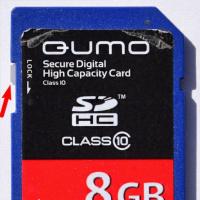Microsoft, what have you done? How one of the most promising mobile operating systems was ditched. What's going on with Windows Phone? Facts Is there a Windows background
MOSCOW, July 29 - RIA Novosti, Natalia Dembinskaya. In mid-July, loud news came from Microsoft: the company officially stopped supporting the mobile operating system. Windows Phone which is still powered by millions of devices. The corporation had to admit: smartphones do not bring it any profit. In recent years, the market share of Windows Phone has been steadily declining, and now it has practically bottomed out - 0.1%. Why there was no place at all for the operating system on the market, what the defectors to Android blame for Windows Phone and whether Microsoft will be able to take revenge on Google and Apple - in the RIA Novosti article.
Nice start
Immediately after its introduction in 2009, Windows Phone managed to take a solid market share - almost 10%. Then the mobile market was dominated by Symbian, on which the first Nokia smartphones worked - it occupied more than 50% of the market, the second largest player was the mobile OS RIM of the then popular manufacturer Blackberry - the famous phones with a full-fledged qwerty keyboard (20.9%). Android was then only trying to find its place in the sun, occupying only about 4%.
A money-losing startup Android Inc., which developed operating system for wearable devices, Google, just in case, bought it back in 2005 and remembered about it only in 2007, when Steve Jobs introduced the first Apple iPhone.
Google quickly realized: the smartphone market is almost empty, and expensive Apple devices will not be able to fill it entirely.
The rapid rise of Android
At the end of 2009, confusion began on the smartphone market. Nokia had already slowed down the development of Symbian by then and relied on Windows Mobile. And Google, in turn, has reached an agreement with the Taiwanese manufacturer HTC. The first device under Android became HTC smartphone Dream, which was a resounding success.
iOS and Android began to develop rapidly, but Apple's position, which prohibited third-party companies from using iOS, played not in its favor. In 2011, with the release of Ice Cream Sandwich, Android was already called "the most advanced operating system", manufacturers Samsung smartphones, Alcatel, Philips, LG began to migrate en masse to a new promising platform. As a result, Android has eaten away almost 50% of the market, squeezing out all the old-timers from it in one fell swoop. Analysts began to count the rapidly decreasing share of Symbian and RIM in the "other operating systems" category.
On the battlefield, Android, Apple and Windows Phone are virtually three. The latter confidently kept afloat - largely due to the release of popular Nokia smartphones Lumia, which gave a second life to the most Finnish phone manufacturer.
Devices on Windows based Phone was also produced by LG.
Nokia got mad at Microsoft
However, the Finns soon began to show dissatisfaction. In 2013, Nokia VP Brian Biniak blamed Microsoft for the lack of competitive applications for Windows platforms Phone. It is for this reason that sales Nokia Lumia began to decline, he assured.
The annoyance eventually spilled over into the switch to Android. So far, on the latest version of the Windows Mobile 10 platform (its support, as observers believe, will be discontinued soon, and finally Windows-smartphones will die by 2021), some HP and Acer models are "sitting".
In 2015, the new head of Microsoft, Satya Nadella, officially acknowledged the failure of Windows Phone.
“The smartphone boom showed that Windows Phone was far behind Android and iOS, and we missed that train,” Nadella said.
Closed file system
What exactly led app makers and developers to ditch Windows Phone and opt for Android?
Ballmer believes Nokia acquisition will accelerate Windows Phone growthTalking about the recently announced deal to buy Nokia's smartphone business, Ballmer said it will "accelerate the growth of Windows Phone and strengthen the overall device ecosystem."Experts believe that the main disadvantage is primarily the underlying closed file system which causes and prevents application compatibility issues full-fledged work... Unlike Android, in the Windows Phone and Windows Mobile interface - limited opportunities to customize applications. The smartphone does not Google services, it is inconvenient to work with the settings of contacts there. And finally, there are several times fewer applications for this platform compared to Android.
"Success is a terrible teacher," Microsoft founder Bill Gates once said. The corporation itself, a long-term leader in the market of operating systems for PCs, has stepped on the same rake. As it turned out, Microsoft was not ready for the onset of the post-computing era.
"Google and Apple moved forward with modern operating systems, and Microsoft continued to view mobile devices as a third-party by-product," observers say.
Lack of change and sluggishness
Experts point out that there have been no changes since the introduction of Windows Mobile 6.1. iOS and Android have updated design and functionality every year. In Windows Phone, this was out of the question - the system remained monolithic and static.
"What kind of personalization? It's the age-old strict office style, the Explorer web browser and the permanent cut-and-paste function," technology portal Quora notes ironically.
Application developers quickly realized that their products for fast-growing platforms looked much more attractive than on Windows. Now there are only about 165 thousand applications in the Windows Phone Store catalog. For comparison: there are about 900 thousand of them in the AppStore, and in Google play- almost a million.
With Windows Phone 7.5, Microsoft tried to catch up, but it was too late. As a result, and with Windows Phone 8, Microsoft found itself in a span: even the solid hardware stuffing of Nokia did not help, observers state.
What's next
The "funeral" of Windows Phone is planned by IDC analysts for 2021 - by that time it will completely disappear from the market, including the latest version of Windows Mobile 10. In the meantime, Microsoft does not intend to say goodbye to it and releases on its basis Microsoft phones Lumia (in 2014, it bought Nokia's mobile device business for 5.44 billion euros).
However, in the near future Microsoft is going to "kill" Lumia and release its new smartphone Surface Phone still has the same tiled interface. In April of this year, the company assured: it will revise its strategy and return to the mobile market with a new vision and new ideas. The market, however, has no doubt that Microsoft will not be able to step into the same river twice.
Modern mobile gadgets can do a lot. And this is not only the merit of the processor, random access memory and other "pieces of iron". Without universal mobile operating systems, smartphones would be mere "dialers". At the moment there are three most popular operating systems for mobile devices: Android, iOS and Windows Phone (Mobile). They are all capable of much. However, the choice of OS is the prerogative of a particular user. Here, a person is guided by his own tastes.
The most popular OS is Android. But a Windows phone is also quite common. iOS is not so common due to the high cost of the product. If "Android" is at least a little, but known to the majority, then Windows Phone OS for many is a dark horse. Let's talk about this wonderful system. Has Bill Gates' company managed to create the perfect mobile OS?
Brief history of the system
If Windows is installed on your mobile gadget, this does not mean that it automatically turns into a computer. This is beyond the power of even Bill Gates, along with Steve Jobs. The very first versions of the "Windows" system were installed on devices such as Sony ericsson P1 or HP. Although the functionality of those devices (and the OS, respectively) was very limited, but against the background of the "pipes" of the early 2000s, they looked like real computers. It was considered very cool to have a Windows phone back then. However, around 2007, Microsoft decided that the system had outlived its usefulness and began to actively develop a new OS, which came out along with the release of the controversial Windows 8.
It is worth noting that in this case, the specialists of the company from Redmond carried out a rather ill-conceived operation. They ditched a system that had been tested for years in favor of a raw product that frustrated a ton of users. Microsoft was able to bring the OS to a sane form only after a couple of years. Windows 8 phone has become a real punishment for users. But over time, the situation improved. However, one problem remained. This refers to the scarcity of the app store. If in "Android" Play Store hundreds of thousands of applications and games, then in Windows Store there are only a couple of hundred of them.
After the release of Windows 10, the company decided to update the mobile platform as well. However, only in the form of insider updates (Technical Preview). Those unfortunate people who risked upgrading to the top ten got terrible problems with their gadgets. And some even received a "brick" after the update. There was nothing more stupid than installing an "unfinished" system on a normally working device. But after a while, Windows 10 phones began to work very adequately. Microsoft has fixed its mistakes. However, the share of WP devices in comparison with the same "Android" is negligible. Let's consider the most popular devices on the Windows platform.
A true flagship from the creators of the legendary operating system. Microsoft Lumia 640 is powered by a Qualcomm quad-core processor with clock frequency 1600 MHz. It has everything that a modern gadget needs. The most important thing is that it has Windows Phone 8.1 installed on board (factory-installed). But the smartphone can be upgraded to the latest OS version. It's worth noting that the system feels great on this device. Everything works quickly, smoothly and clearly. The only problem remains: there are very few applications for this platform. But by 2016 the situation had improved.

Microsoft is for those who are a fan of Bill Gates and his operating system. There are models with support for one SIM card, and "dual-SIM" copies. The characteristics of the smartphone are very impressive. There is even support for LTE (4G) and NFC chip... This is a completely modern device based on the Windows platform.
The device was released in 2015, which immediately has Windows 10 installed in its arsenal. Even if something is good, it does not have to be updated. Jokes aside, the Microsoft Lumia 550 is a pretty decent smartphone. He, of course, does not shine with flagship characteristics, but it will cope with all everyday tasks "with a bang." For this, he was created. The "chip" of the gadget is a very high time indicator autonomous work... According to the manufacturer, the device is capable of working on a single charge for 16.5 hours of talk time (with 3G enabled). This is an impressive result. Also, 86 hours of music playback are available to the user. And in standby mode the device can work for 864 hours. Absolute record holder!

Meanwhile, Microsoft Lumia 550 is the same Nokia, but with a new name. And this Finnish manufacturer is still legendary. And they were the first to use Windows in their gadgets. So this device can be called a continuation of traditions.
730 Dual Sim
One of the few Windows-based devices released under the Nokia brand. Despite the old name, the device combines all the latest achievements mobile industry... But most of all users were attracted by the optics from Carl Zeiss on the camera. This made it unique even at 6.7 megapixels. The last stronghold of the old era is the 730 Dual Sim smartphone. Reviews for this gadget have been overwhelmingly positive. So far, users have not upgraded to "ten". That's when the mess started. But with the updates, the situation has improved. It's only a shame that Microsoft has followed in the footsteps of Samsung and does not provide old devices with updates.

A wonderful gadget, and now it has not lost its relevance. Its performance is on par with mid-range smartphones. And if you consider the original appearance, then this device has no price at all. And not only "oldfags" will be happy to have it.
Nokia Lumia 1020
At one time, this smartphone made a whole revolution. Even before its appearance, the Internet was flooded with rumors about the unrealistically powerful camera of the upcoming flagship. And the rumors were not deceived. According to the manufacturer, the 1020 is equipped with a module with a record number of megapixels - 41. This has never happened before. However, upon closer inspection, it turned out that the module has only 16 physical megapixels. Everything else is done programmatically. But that was also a breakthrough. The camera phone began to be actively bought up by lovers of mobile photography. A Windows phone that takes quality photos! Who will miss this?

Windows 8.1 was installed at the factory. But soon Microsoft made it possible to upgrade to the top ten. There were some problems, of course, but they were fixed by subsequent updates. After that, the excitement around 1020 subsided. The smartphone turned out to be not as good as we would like. But making allowances for the fact that it was developed by Microsoft and not Nokia, one can forgive such a thing. After all, the brainchild of Bill Gates has a habit of spoiling everything it touches. Remember the epic with Skype.
HP Elite X3
This device is relatively "fresh". It was released in 2016. The company, which mainly produces laptops and PCs, has unveiled a smartphone. This is already interesting, since this has definitely not happened for ten years. The gadget did not disappoint. It has everything you need for comfortable work. And the docking station allows you to turn your mobile device into full-fledged computer... If the Elite X3 tops the list of Windows Phone onboard phones, then no one will be surprised. Its power is so exorbitant that the "ten" installed on it is unable to reveal its entire enormous potential.

Although to call this creation "telephone" is a terrible blasphemy. Before us is the CCP in all its glory. It differs from an ordinary computer only by its size and the ability to make calls. But in the camp of smartphones, he is considered overgrown. Still would! With a 6-inch screen, it easily stands out from other mobile gadgets. HP, as always, is at its best. Her PDA could always impress users. Experience in the production of full-size PCs and laptops affects.
Alcatel POP2 Windows
A gadget that was announced back in 2014. However, its release is scheduled for 2017. The device is based on Windows 8.1. Its capacity is enough to solve all everyday tasks. You can also play, but not the coolest games. The device is rather weak for them. But there is support cellular networks the latest generation. And it is absolutely impossible to imagine a modern smartphone without this. The gadget will appeal not only to students. Many will find it attractive. And if you consider that the price will not be particularly burdensome, then POP2 in general can become a hit of sales.

Alcatel has been known for its phones since the early 2000s. However, in the era of smartphones, the manufacturer was left behind and could not break into the mobile device market in any way. Perhaps POP2 Windows will somehow change the situation? I would like to believe it, because the company is not bad. Her devices have always been of high quality.
Acer Liquid Jade Primo
An affordable smartphone with almost flagship features. Acer's strength is that they've managed to create a Windows Mobile 10 phone that stands out from hundreds of other devices. The company has always been distinguished by its original design. And this gadget is no exception: its looks are impressive. But the characteristics are even more striking. Few "Windows Phones" can boast a FullHD screen, a powerful camera and 3 gigabytes of RAM. It should be noted that this is far from the first experience of the company in the production of mobile devices. It can be seen that Acer has not lost its knack. Her devices, as always, are at their best.
Archos 50 Cesium
Little is known about the company's mobile devices. She never rushed to become the leaders of the mobile industry, so her devices were not distinguished by unattainable prices. The more interesting is their novelty from the category of "Windows phones". The smartphone has average performance and a standard appearance. But at a price it is closer to the state employees. Even the monsters of the mobile industry cannot create a cheap and powerful enough gadget, because they all want to get a kickback for the brand. But Archos doesn't need that. Therefore, her latest creation may well lead the rating of the best-selling.
Acer Liquid M220
Another brainchild from Acer. The company has tried to make a high-quality, inexpensive and productive Windows smartphone. Did they succeed or not? It is up to users to decide. But outwardly, the device looks very dignified. There are no complaints about the performance: we have a confident "middle peasant" in front of us. And for the price it is very pleasant. It is worth noting that Acer is one of the few that supplies all its devices with timely updates. And this is another plus in the company's track record. Choosing Acer products, you will definitely always be in trend, despite the "antiquity" of your smartphone.
Dexp Ixion W5
A smartphone from a little-known and not entirely clear manufacturer. According to some reports, Dexp is a Russian company that sells equipment from "left" Chinese manufacturers under its own brand. Knowing this, you need to be extremely careful. However, the device looks very tempting. For a frankly low price, the user is offered a gadget with average characteristics. This alone should be alarming. And the reviews about the manufacturer in general, and about the model in particular, are not encouraging. Owners complain about clumsy assembly, constant firmware glitches and a complete lack of updates. Even though Windows is on it.
Judging by the reviews of the owners of the equipment of this company, it does not deserve trust. However, smartphones from this manufacturer can be bought by those who care about the price of the device, not its quality. If we are guided only by this principle, then Dexp products are very, very attractive. But nothing more.
HTC Mozart 7
The next device from the category of "Windows phones" - Firmware for Windows Phone 8.1 is available for it. Although the factory is supplied with version 7.5. So there is no need to breed panic. The device is positioned as "musical", although there is nothing musical (by modern standards) in it. In general, the device is from the category of "ancient". But some will love it. Because of the appearance. Gadgets from the NTS from the past are distinguished by a unique design. Their appearance stands out among the faceless modern "soap dishes".
The smartphone, meanwhile, can be successfully used as a regular dialer, GPS navigator and MP3 player. But for surfing the Internet, it is not suitable. The screen is too small. But for the money that is now being asked for this gadget (of course, used, because it has already been discontinued), the set of functions is quite adequate. What what, but beautiful and functional gadgets have always been the "horse" of HTC. Windows Phone 8 on board (after the update) is also a nice bonus.
Conclusion
Few manufacturers can please the user with a wide assortment, but they are available. Albeit in a much smaller number than Android devices. Meanwhile, this mobile platform (with adequate "add-on") manifests itself as a very stable, reliable and stylish operating system. There is only one snag: a very small number of applications in the store. Some developers do not even strive to release applications for this platform. However, the situation is improving. The store will be tidied up soon. But this platform will never be able to fully compete with "Android". Even though she is good.
09.10.2017, Mon, 13:22, Moscow time, Text: Valeria Shmyrova 2613
A Microsoft VP announced on Twitter that Windows 10 Mobile will no longer receive any updates other than security. Since the number of platform users is small, and the developers are indifferent to it, it was decided to stop further development of Windows Phone.
Belfiore's statement
Microsoft officially acknowledges that it has stopped development mobile platform Windows Phone. This was announced on Twitter by the company's vice president for operating systems. Joe Belfiore(Joe Belfiore). According to him, Windows 10 Mobile, the latest version of the platform, will not receive more updates, except for those related to security.
Belfiore admitted that he himself switched to Android, like the head of the company Bill Gates(Bill Gates). Microsoft intends to support those Windows 10 users who also want to use Android and iOS on their smartphones, he said. Now the company is working to make it easier for users to transfer data from a PC to Windows control 10 to mobile devices.
Lack of applications
One of the reasons Microsoft made this decision was the lack of interest in Windows Phone from developers. “We tried very hard to encourage developers. They paid money ... wrote applications for them ... but the number of users is too small for most companies to invest, ”Belfiore said.
The Windows Phone app store has never had much revenue when compared to Apple Stores and Google, writes The Verge. The developers did not refuse to create versions of their applications for it, but over time they stopped updating and maintaining them. As a result, applications of American Airlines, Chase Bank and Bank of America, NBC television, social service Pinterest, game developer Kabam, and many others. Some companies did not hide that the reason was the insufficient number of Windows Phone users.

Microsoft has officially admitted to terminating Windows development Phone
Microsoft itself has also removed a number of its own apps from the Windows Phone store, including some related to MSN, as well as the Photosynth panorama app and several camera apps for Lumia smartphones running Windows.
The fate of mobile Windows
In July 2017, Microsoft's Internet users were indifferent to the fate of Windows Phone. The reason for their indignation was that in Windows assembly 10 numbered 16251 Microsoft added new function- it became possible to "bind" the smartphone to the PC. Possibilities of "binding" were not very great: the user could send to the computer a link to the web page that he viewed on mobile device... At the same time, the "binding" was designed only for the iOS and Android platforms. That is, the innovation did not apply to the company's own mobile operating systems - Windows Phone and Windows 10 Mobile.
The first Windows version Phone was released in 2010. In February 2015, the last of the current existing versions platform called Windows 10 Mobile. Her distinctive features the ability to sync content with a PC, connect the device to a large screen or use it as a PC, with a mouse and keyboard, and support for Universal Windows Platform (UWP) applications.
The total share of Windows smartphones in the market is small - 99.6% of new devices install Android or iOS. Currently, about 80% of all smartphones that run Windows use Windows Phone 7, Windows Phone 8, or Windows Phone 8.1, and only 20% have Windows 10 Mobile installed.
- Top Devices to combat allergies: air purifiers, humidifiers and mobile inhalers
Well-known Windows blogger Paul Turot tries to make sense of the latest news on WP - and comes to disappointing conclusions.
Paul Turot - Tech Expert and Microsoft Blogger
Last July, Paul writes, Microsoft practically left the smartphone market. Now the company ... left him a little more.
- Microsoft is de facto leaving the consumer smartphone market. The company has acknowledged its failure in this direction and will now focus on corporate clients. Ironically, when launching Windows Phone in 2010, Microsoft completely ignored the line of business.
- Almost all Nokia employees who joined Microsoft in 2014 will leave the company by the end of this year. In 2016, only 1,850 "Finnish" employees will leave the company. Not so many - but most of the employees have already been laid off in the course of the previous two waves of "personnel optimization".
- On the acquisition of Nokia, Microsoft lost much more than $ 7.5 billion. The real amount of losses exceeds $ 10 billion.

Any of these three facts are enough to make a very serious impact on Windows Phone as a platform. Now, Paul writes, unlike the situation last year, there is simply nothing to analyze - everything is clear without further ado. The blogger believes that the past year, rich in unpleasant truth about the platform, has made the majority of WP fans realists. Yes, there are still some very hard-nosed users who are waiting for the future revival of the system. But most Windows Phone fans seem to understand exactly what the truth is.
And the truth is as follows:
- Windows Phone is irrelevant as a platform. Now Windows smartphones occupy less than 1 percent of the global smart phone market, and there are not many applications and games needed by a modern user for them.
- Microsoft will continue to develop Windows 10 Mobile. Not to be confused with "Lumia" - Microsoft will only develop and improve the operating system. Windows system 10 Mobile. Why? Because this is just a SKU (product version) of Windows 10, and because it runs on ARM hardware that runs modern mobile devices.
- A new smartphone from Microsoft will come out ... maybe. It is unclear whether this device will be released under the Lumia brand (most likely not) or under the new Surface brand.
- Relax, nobody forbids you to use your Windows smartphone. Paul complains that he gets a lot of strange comments from users - they somehow think that he is trying to convince them not to use Windows Phone. Not at all! Turot simply suggests that you stop worshiping Windows Phone as a promising platform and something that you can recommend to your friends and acquaintances.
“If you know where you are going, no problem. But stop pretending that Windows Phone solves problems that iPhone and Android can't... These platforms are now vastly superior to Windows Phone. Sorry".
From the point of view of the Windows Phone fan, by and large, nothing has changed: Microsoft will continue to support the platform they like, and they can safely continue to use the devices and maybe even buy new devices in the future. For the rest of the world - and that, unfortunately for WP fans, includes 99.9% of users - not much has changed either. Most people can still safely ignore Windows Phone.
For me, an admirer of Microsoft products, it is painful to watch how ineptly ruined the most promising mobile operating system, how they barbarously trampled on the image of a transnational company, how cynically they destroyed the hopes of fans. Recently, I admitted that Microsoft smartphones have gone to another world. Sadly, it must be admitted that Microsoft's attempt to become the third mobile OS was unsuccessful. The share of the smartphone market is falling dramatically; the company has not been producing new devices for a year. Some may argue about some kind of imaginary rebranding, revision of views, etc. All this is just talk and idle chatter.

For me, an admirer of Microsoft products, it is painful to watch how ineptly ruined the most promising mobile operating system, how they barbarously trampled on the image of a transnational company, how cynically they destroyed the hopes of fans. Recently, I admitted that Microsoft smartphones have gone to another world. Sadly, it must be admitted that Microsoft's attempt to become the third mobile OS was unsuccessful. The share of the smartphone market is falling dramatically; the company has not been producing new devices for a year. Some may argue about some kind of imaginary rebranding, revision of views, etc. All this is just talk and idle chatter.
Case design and materials
The world around us is changing inexorably: metal and glass have replaced the old plastic materials of the case. But it seems not for Microsoft. I got the impression that the company's developers and designers continued to get blanks from Nokia's warehouses, putting new stuffing into them, and tried to sell them. I was very surprised how in 2015 it is possible to release flagships, the body of which will be plastic. I understand the thesis that plastic is different from plastic, but in the Lumia 950 / 950XL it was clearly of low quality. And how can you explain that the body of smartphones creaked, “like a shabby saddle” by Mikhail Sergeevich Boyarsky. Didn't the authors of the design really notice this before throwing their products on the market? Didn't they run crash tests? Or the banal "maybe it will pass" is inherent in them? To say that this defect is due to the fact that the removable battery looked simply banal and ridiculous. Only the lazy did not write about the creaky body. When I first took a smartphone in my hands, I myself felt the cheapness of the product. It was a smartphone from 2013, but not 2015. What kind of competition with Samsung, Apple, LG and even some Chinese manufacturers in terms of design quality could we talk about? Competitors have gone far ahead, learned to make devices that are almost masterpiece in beauty and style.
Tiled interface
I will immediately disappoint those who think that I have seen the light about the "wretchedness" of the "tiled" interface of Windows smartphones. I still like it very much. Moreover, I think that he is a fresh breath of air against the background of a bored blank Desktop on Android and iOS.
I still don't like competing desktops. As an acquaintance of mine said: “Maximum fun in the iOS world- swap widgets and put them in folders ”. I'm not talking about Android at all. Sometimes it reminds me of a battle of functionality versus aesthetics. I am annoyed by the clutter of Desktops on such smartphones. A couple of widgets and icons and your desk looks like a dump of unnecessary things.
In Windows Phone / 10 Mobile, tiles act as both a widget and an icon. quick access... They are lively, interactive, comfortable.
But Microsoft wouldn’t be itself if it hadn’t screwed up such a cool idea. Not only did the developers lack the patience to wait, improve their work, and seek recognition. The company tried to make concessions and compromises. I understand that many users disliked desktop windows 8 and then this dislike was transferred to mobile version... But why didn't the developers of the "tiled" interface continue to bend their line? Why did the transparency of the tiles and the ability to set your own photos for wallpaper appeared only in the second year? Why was it impossible to copy the best in this regard from competitors? Those, after all, never disdained it. No, we are proud, we will not copy, it would be better if we lose the market! Some questions ...
Platform progressiveness
Until the last moment, I did not believe that Microsoft's mobile OS would not be able to impose at least some kind of struggle on its competitors. It was sad to realize that Windows smartphones are no worse, and sometimes even better in their own way. price segment... They were equipped with pretty good hardware, excellent cameras, excellent speakers. After all, few of budget smartphones on Android boasts such gorgeous cameras and an application for them, as in the same Lumia 640. Few people will be able to work on 1 GB of RAM and at the same time work correctly. Surfing the Internet, chatting with friends in in social networks, even through those not very high-quality applications (about them below) - this is a special strong point of smartphones.
But this applies to the first Microsoft smartphones, and then it got worse and worse. A particularly egregious fact for me was that most Windows Phone smartphones never received the upgrade to Windows 10 Mobile. The excuse was gorgeous: they say, the hardware component will not cope. But the new devices, which immediately received Windows 10 Mobile, were much weaker than their predecessors. How can you not respect the user in order to lie so blatantly and feed him with promises? Only Microsoft can do this. The smartphones that replaced the solid x20 series were on old hardware and only irritated fans and laughed at competitors. Over time, the release was stopped altogether. There was no reason to hope that users would not move en masse to competitors.
Universal Applications
Almost one of the reasons for the failure of Windows smartphones was considered to be the insufficient number of applications on this mobile platform. For me, a certain logical chain has lined up. There are no applications because Windows Phone is not popular, and it is not popular because there are no applications. Some kind of vicious circle. I understand the developers: why make an application for a platform where three and a half are crippled.
This is where Microsoft was supposed to work. It was necessary in every possible way to encourage these same developers, to allocate resources and funds to them. The company, on the other hand, had high hopes for universal applications, tried to create all sorts of projects for porting applications from Android and iOS, but almost all of them were closed over time or were postponed indefinitely. Some promises, words, words, words ...
I am especially bewildered by the cross-platform focus of Microsoft. It defies logical explanation that the same Skype and Office 365 work much more correctly on the iPhone than on Windows smartphones. It's like not believing in your products in order to make applications for them that work much worse than those that the company itself produces for competitors. Or, as in the saying: "Give your wife to your uncle, and yourself ...", which is very strange.
Continuum
This innovation is the only one that makes me very sorry for the mobile OS from Microsoft. A truly awesome feature that turns your smartphone into a full-fledged desktop PC. None of the competitors have such a thing. It was a real shot at the mobile market.
Microsoft missed this chance. In the year since the appearance of Continuum, it has hardly changed. Some applications have appeared, some functions have been improved and that's it. One gets the impression that the company has lost interest in this idea too. Probably, developments are underway, but very imperceptibly. Plus, I read more and more that universal apps sometimes work disgustingly in Continuum mode.
Recently, rumors have been circulating that work is underway to rethink the mobile platform. I really hope there will be room for Continuum in this new concept Microsoft.
User care
Any success operating platform primarily depends on how the developer company treats its users. Alas, Microsoft has always had problems with this.
It is necessary to deceive your users twice so impudently and shamelessly without even bothering to explain everything in an elementary way. Probably everyone understood that I was talking about Microsoft's empty promises to update old smartphones to new version ON. Not only were they simply delayed with the entry into the smartphone market, they also managed to lose even that small part of users. You just need to be able to!
One gets the impression that immediately with the arrival of Satya Nadella as head of Microsoft, the company has already decided to get rid of the mobile segment. There can be two reasons: either the new CEO got rid of the legacy of his predecessor, or it’s corny that the company didn’t know what to do in this smartphone market. Then it would be more logical to switch to Android immediately after buying Nokia, while simultaneously promoting its services and services on this platform. I cannot find any other explanation.
Usually, when a person or, in this case, a company is late somewhere, he looks closely, adjusts, copies, develops and adds his own. But apparently prejudices about their greatness prevailed in the company and the fall was very painful and unpleasant.
The fact that Microsoft finally had the courage to admit that they failed in the mobile segment, that they were unable to oppose anything sensible to competitors, is encouraging. The latest news that Windows 10 will be compatible with ARM-processors gives hope that Microsoft will be able to return to the mobile OS market in a new quality.
 Norton Security - make all online alarms a thing of the past Norton Account
Norton Security - make all online alarms a thing of the past Norton Account Visual bookmarks disappeared in the mozilla
Visual bookmarks disappeared in the mozilla How to remove norton completely Disable virus protection completely
How to remove norton completely Disable virus protection completely Recuva: Recovering deleted files How to delete files found by recuva
Recuva: Recovering deleted files How to delete files found by recuva Instructions for recovering flash drives How to move broken sectors on a flash drive
Instructions for recovering flash drives How to move broken sectors on a flash drive File recovery: Recuva Accidentally deleted an important file?
File recovery: Recuva Accidentally deleted an important file? Download key file for dr web android
Download key file for dr web android